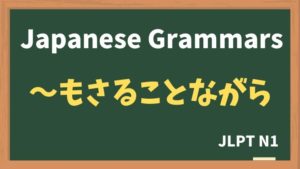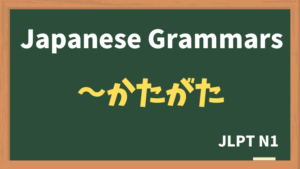
Explanation:〜ではあるまいし
fa-check-circleMeaning
"〜ではないのだから、当然・・・だ。"
Used to reject or criticize an unreasonable or inappropriate action, by comparing the current situation to something that it obviously isn’t. It is similar to saying "It’s not as if..." or "You’re not a..." in English, to point out that certain behavior is unnecessary, illogical, or exaggerated based on the situation.
fa-check-circleForm
N + ではあるまいし
fa-check-circlePoints
- Comparative Criticism: This expression highlights that the current situation is not as extreme or serious as the one being mentioned, so the behavior or reaction is deemed excessive.
- Used in Negative or Criticizing Contexts: It is often used to criticize or reject actions, suggesting that because the situation is not as drastic as what is being compared, such behavior is unnecessary.
- Casual to Formal: This expression can be used both in casual and more formal contexts, though it leans toward conversational language.
fa-check-circleJLPT Level
N1
fa-check-circleNote
カジュアルな言い方は「〜じゃあるまいし」
Sample sentenes
子供じゃあるまいし、それぐらい一人でできるでしょ!
It's not like you're a child, so you should be able to do that by yourself!
新人ではあるまいし、そんな仕事10分で終わるでしょ。
You're not a newbie, so that task should take you only 10 minutes.
お金持ちじゃあるまいし、そんな高価なものは買えません。
It's not like I'm rich, so I can't buy something that expensive.
一生会えなくなるわけじゃあるまいし、そんなに悲しまないでよ。
It's not like you'll never see them again, so don't be so sad.
漫画じゃあるまいし、そんなことできるわけないだろ。
It's not like this is a comic book; there's no way you can do that.
神様じゃあるまいし、未来がどうなるかなんて誰にもわからないよ。
It's not like you're a god, so no one knows what the future holds.
Vocabulary
| Japanese |
English | |
| 神様 | かみさま | god |






